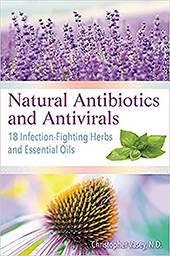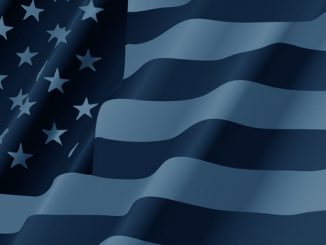
By Tilton Adler
Seven months have passed since a novel virus upended our lives, and we still don’t have a clear national strategy for taming the beast that is Covid-19. If you’re thinking one is on the horizon—excuse the pun—don’t hold your breath. Conflicting information pervades the airwaves. President Donald Trump says we are rounding the final corner while Dr. Anthony Fauci says we are still in the first wave. New York will soon re-open indoor dining at 25% capacity while parts of Texas reopened at 75% capacity in May. There is no succinct federal plan mainly because the needs of the various states differ so greatly. State governors have resorted to a patchwork approach to reopening, inadvertently sowing confusion in an already mind-boggling time and potentially adding to interstate transmission of the virus.
Instead of waiting for big government to tell us what is in our best interest, we should educate ourselves on how best to protect ourselves and our families. To do this we must start by asking three very important questions: 1) How is the virus transmitted? 2) Where is it most commonly contracted? 3) What can we do preemptively to bolster our immune systems?
The Centers for Disease Control and Prevention (CDC) now says most Covid-19 transmission occurs via droplets expelled through talking, breathing, coughing, and sneezing. This means it is predominantly airborne, passed between people in relatively close contact. While grocery shopping has been a source of anxiety for many due to fears about surface contamination, the good news is that transmission in grocery stores is low. The CDC explains, “Because of the poor survivability of these coronaviruses on surfaces, there is likely a very low risk of spread from food products or packaging.” The takeaway is we don’t really need to wipe down our groceries or mail deliveries, as they are not considered to be a viable source of transmission.
CDC officials released a report indicating, “Findings from a case-control investigation of symptomatic outpatients from 11 U.S. health care facilities found that . . . adults with positive SARS-CoV-2 test results were approximately twice as likely to have reported dining at a restaurant than were those” who tested negative. On-site dining establishments, coffee shops, bars, and concerts with large crowds appear to be the top contenders when it comes to locations involved in viral spread. Several factors are at play: Masks are rarely worn, fresh air is not well circulated, and respiratory droplets are easily passed between guests during conversation. To reduce your risk of contracting Covid-19 while still supporting local businesses, which we know to be essential in rebuilding our nation’s economy, opt for well-spaced outdoor seating or place carry-out orders for food.
Worship gatherings have also been notoriously demonized as “super-spreader” events, though church services can easily be made “corona safe” with simple safety measures—and should have been allowed to resume months ago.
Unfortunately, the main source of transmission is much more difficult to avoid: our own homes. According to the above-mentioned report by the CDC, Covid-19 is most often contracted from a family member with whom the household is shared. So, if we aren’t safe at restaurants, or church, or even in our own home, what can we do to protect ourselves?
SIMPLE STRATEGIES
Americans are notoriously unhealthy. We spend countless hours in front of our televisions, phones, and computer screens. Many Americans smoke and drink too much and a walk to the mailbox is considered a sufficient daily cardio workout. Covid-19 has only exacerbated these problems. The following interventions may be used to bolster our health in the fight against contagious diseases. Taking sufficient vitamin D3, using mouthwash, and wearing a mask when close to other people in public may all prove capable of staving off not just Covid-19, but influenza and the common cold.
Vitamin D3 works to reduce the body’s inflammatory response, thereby reducing the viral load that can cause damage to the lungs and lead to pneumonia. In an interview with United Press International, University of Chicago Professor of Medicine Dr. David Metzler said, “There is prior evidence from multiple sources that vitamin D can enhance both innate and adaptive immunity.” According to a recent study published by the National Library of Medicine, “To reduce the risk of infection, it is recommended that people at risk of influenza and/or Covid-19 consider taking 10,000 International Units per day (IU/d) of vitamin D3 for a few weeks, followed by 5000 IU/d.” Information defining the IU strength of a supplement can be found on the label. More information on high-quality, bioavailable supplements can be found at Carotec.com, the health company started 35 years ago by “Radio Free America” host Tom Valentine, now run by his family. It is important to note that vitamin D3 is also naturally absorbed through the skin’s exposure to the Sun. Walking daily in sunny weather will help naturally boost your D3 levels while simultaneously improving mental and physical health.
Interestingly, although still in the clinical trial phase, alcohol-based mouthwash could, in theory, disrupt the way the SARS-CoV-2 cells replicate in the throat, thereby reducing the viral load expelled through breath, coughing, and sneezing. The summary of a study by virologists at Ruhr-University Bochum states, “Results from cell culture experiments show that commercially available preparations have an effect on Sars-Cov-2 viruses.” More research is required to prove preventive efficacy, but this is a prime example of the scientific community thinking outside of the Big Pharma box.
Facial coverings have become a hotly debated, highly partisan topic, but science may provide a middle-ground for those on both sides of the fence. According to the New England Journal of Medicine (NEJM), “Universal masking could [actually] generate immunity and thereby slow the spread of the virus.”

Hypothetically, wearing a face covering may allow just enough of viruses to enter our system, thereby sparking an immune response without overloading our system. Ironically, the lack of 100% efficacy in facial coverings may be exactly what makes them beneficial. More studies will be needed to make a final determination on the role mask-wearing will play in containing viral spread. Critics of masking, of course, have also presented much evidence that masks cut down on proper oxygen and do not allow bad germs to escape, thus offering more harm than benefit. There are points to consider on both sides of the masking argument.*
As flu season nears and common colds are ever more common, it is imperative we remember that Covid-19 isn’t the only germ out there making people sick. We can all take simple, tangible steps to improve our overall health. This includes eating a proper diet, hydrating properly with water, considering vitamin supplementation when needed, properly exercising, and getting some fresh air and sunshine, at the very least.
Note: Other immune-building supplements include olive leaf and fruit extract, vitamin A, chelated zinc, vitamin C, B vitamins, and pro-biotics and pre-biotics, as much of your health begins in your gut.
*AFP has a durable blue face mask with ear loops that can be washed again and again. The mask is helpful in jurisdictions where the governor has mandated that masks must be worn to buy groceries, visit stores, enter a doctor’s office etc. Made of a sturdy three-ply flexible fabric, this blue mask with white AFP logo is $15 ppd. inside the U.S. Order from AFP, 117 La Grange Avenue, La Plata, MD 20646. Call 1-888-688-6397 toll free to charge, Mon.-Thu. 9-5 ET.






